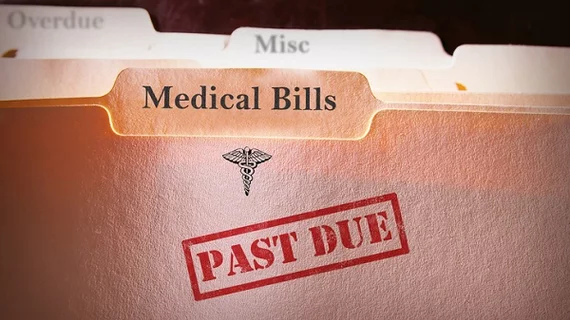AHA, AMA drop lawsuit challenge to No Surprises Act
The American Hospital Association (AHA) and the American Medical Association (AMA) have dropped their legal challenge to the interim final rule independent dispute resolution process of the No Surprises Act.
The No Surprises Act went into effect at the start of 2022 with the aim to protect patients against surprise billing, in which patients receive bills for healthcare services weeks or even months after treatment. However, changes to the rules have occurred over the last year as a result of lawsuits and adjustments by federal agencies.
Both healthcare associations challenged the law despite broad support to end surprise billing because the revised final version of the law, published August 26, favors insurers instead of aligning with Congress’ intent, they stated.
“No patient should fear receiving a surprise medical bill. That is why the AHA and AMA strongly supported the No Surprises Act to protect patients from unexpected medical bills and keep them out of the middle of any billing disputes between providers and commercial health insurance companies,” the associations said in a statement Sept. 21. “Congress enacted the law with a balanced, patient-friendly approach, and it should be implemented that way. We have serious concerns that the August 2022 final rule departs from Congressional intent just as the September 2021 interim final rule did. Hospitals and doctors intend to make our voices heard in the courts very soon about these continued problems.”
In August 2022, the U.S. Departments of Health and Human Services, Labor and the Treasury released final rules on surprise billing, finalizing certain requirements in the July 2021 interim rules. Earlier in 2022, the U.S. District Court for the Eastern District of Texas stripped parts of the No Surprises Act, including payment determinations under the federal independent dispute resolution (IDR) process. The rules as of July 2021 protected against balance billing and out-of-network cost sharing, as well as requiring plans and issuers to disclose the qualifying payment amount (QPA) to providers.

